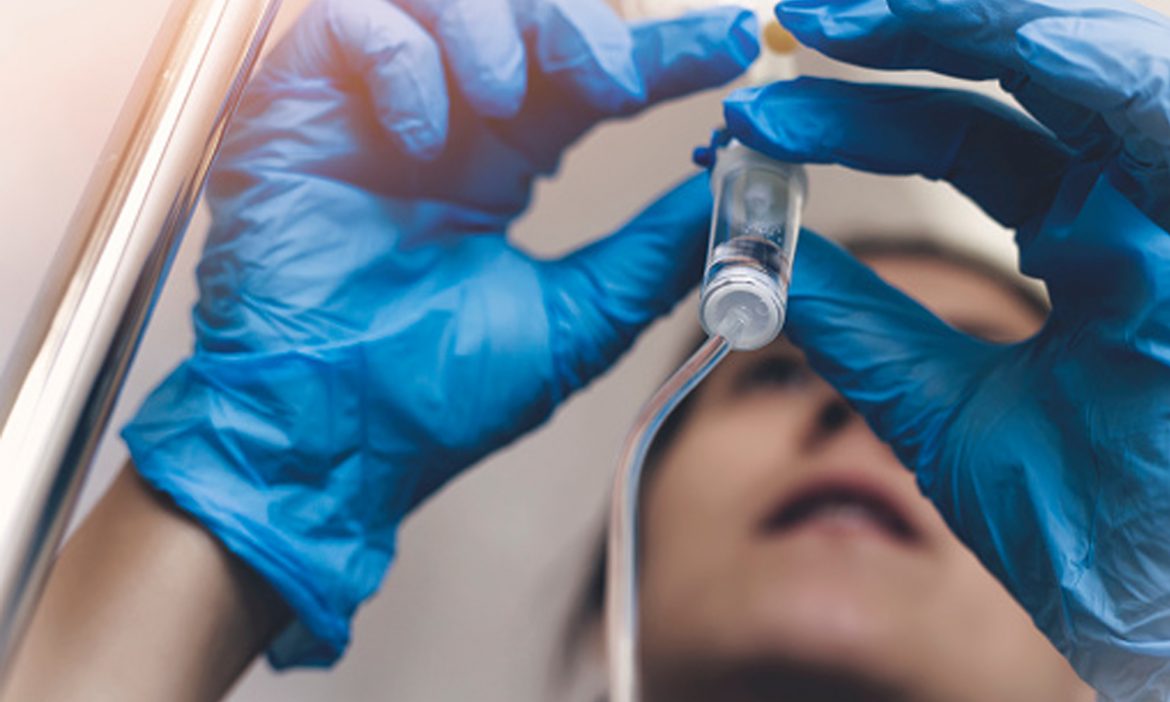Opioids can become addictive in as little as seven days — and many people are first prescribed these painkillers after a visit to an emergency room.
Recognizing these risks, Baptist Memorial Hospital-Memphis is using a new approach to manage pain experienced by patients visiting its emergency department (ED).
ED pharmacists designed and implemented a protocol that calls for ED physicians and clinical staff to use non-addictive options including lidocaine patches, intravenous acetaminophen, muscle relaxers and non-steroidal anti-inflammatory medications when appropriate.
The program has been in place for a little more than two years and may serve as a model for other EDs across Tennessee looking to reduce the number of opioid prescriptions dispensed at their facilities.
I recently connected with Baptist Memphis leaders Dawn Waddell (clinical pharmacy manager), Dennis Roberts (director of pharmacy), and Jillian Foster (Baptist Memorial Health Care’s system pharmacy administrator) to learn more about the program and its effect.
Dr. Willis: What does ‘opioid-light’ mean, and what are the different aspects of this protocol?
Dawn Waddell: Opioid-light means we manage pain using opioid alternatives whenever possible. When we do prescribe an opioid, it is usually a second or third option for pain control, and we always try to use the lowest effective dose.

Where did the idea originate, and why did you start in the ED?
Dennis Roberts: It came up through a couple of channels — our ED medical director approached our pharmacy team as our pharmacists were learning about some trial opioid-light programs in Colorado.
We launched this effort in the ED because it offered the most opportunity — studies have shown that many painful conditions commonly treated in this unit can be treated with alternative therapies.
Tell me about your employees’ response. Were your clinical staff on board with the concept?
Dawn: The nurses quickly embraced the new protocol, as did the providers once they became more familiar with using the alternative medications. Once we gained experience and saw our patients respond positively, it was easy to gain momentum.
What did training look like for your ED?
Dennis: Our pharmacy team held monthly meetings with the providers, staff meetings and huddles, and offered one-on-one education. Peer-to-peer education was vital for our providers, and the physicians with more experience using this type of approach to care helped guide practice. The nurses also made suggestions to remind practitioners to try alternatives prior to ordering opioids.
How quickly did you see the impact of this opioid-light approach?
Dennis: We saw a decrease in our opioid usage within the first three months. Usage continued to fall as we evaluated individual provider data, provided more education, and identified barriers to continued improvement. In a little over a year, we achieved a sustained reduction of more than 70% from our baseline.

Can you tell me more about the positive response from patients?
Dawn: We found that patients really valued our responsiveness and approach to acute pain.
We tried to always emphasize what we were doing to treat their pain, not what we were holding back.
They also appreciated conversations regarding the risks of opioids and that we cared about how patients did in the long-term, not just while in our ED.
What are next steps for this program?
Dennis: We continue to track our numbers and are excited to share this work with other EDs through the state through Tennessee Hospital Association’s pilot program. We are sure we have more to learn as other hospitals implement this type of program and find more ways to improve the work. We are also expanding use of this opioid-light approach to other departments — right now, we are working on how we manage pain in our surgery patients.
Jillian Foster: I really appreciate and admire our team’s responsiveness and commitment to continued improvement for the program. We have received feedback about a need for a specific protocol within this program to ensure that sickle cell patients receive appropriate care, and the Memphis team is taking the lead on an order set that would properly address those patients.
It is amazing how a simple concept could be so impactful and easily replicated in other EDs and health systems. We are so proud of the work that our Memphis ED started.
About our strategic partner in Memphis
The Baptist Memorial Hospital-Memphis campus is home to one of Tennessee’s highest volume hospitals, a 706-bed facility that is the flagship of the Baptist Memorial Health Care system. The Baptist system is a BlueCross strategic clinical partner, committed to providing high-quality, cost-effective care for our members.
About our efforts to combat opioid addiction
Our No. 1 priority is supporting the health of Tennesseans, which includes fighting opioid abuse and misuse across our state. Our partnerships with health care providers, nonprofits, and others have played a key role in our ability to help address the dangers of these drugs.
Learn more about our work to address the opioid crisis, and the results we’ve seen so far.


 Dr. Willis ensures that all clinical initiatives and quality endeavors support the needs of our members, and contribute to the overall health and well-being of our communities.
Dr. Willis ensures that all clinical initiatives and quality endeavors support the needs of our members, and contribute to the overall health and well-being of our communities.